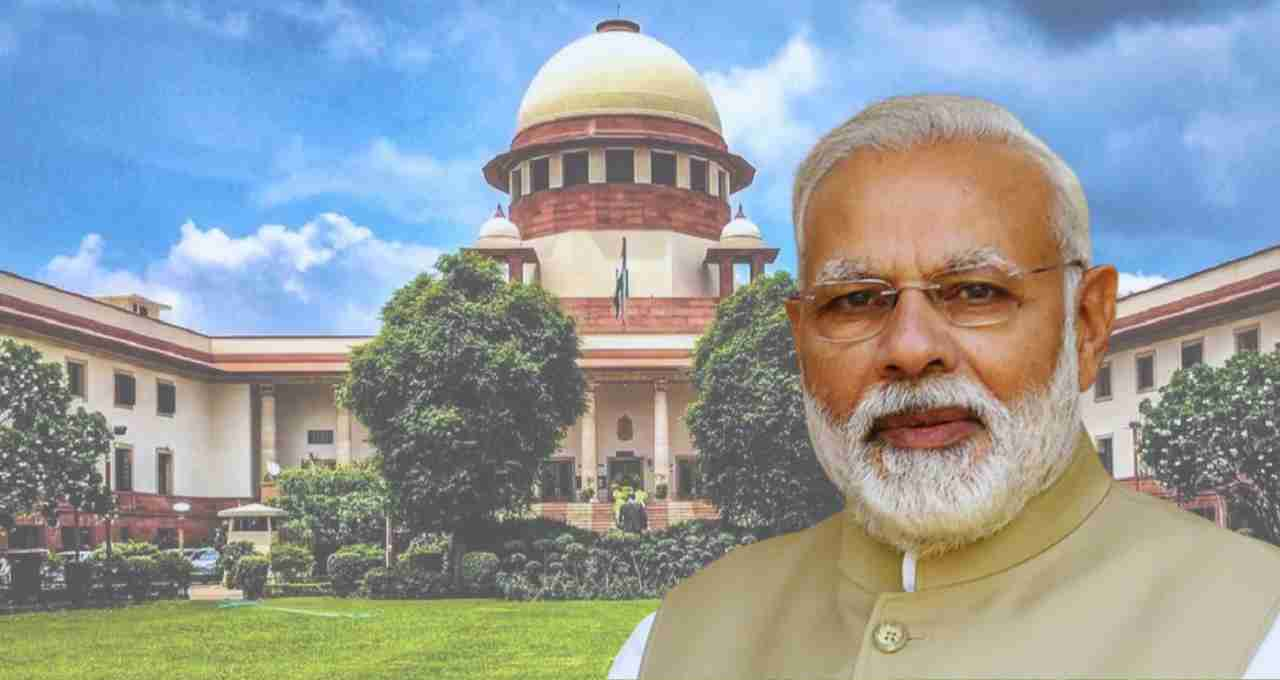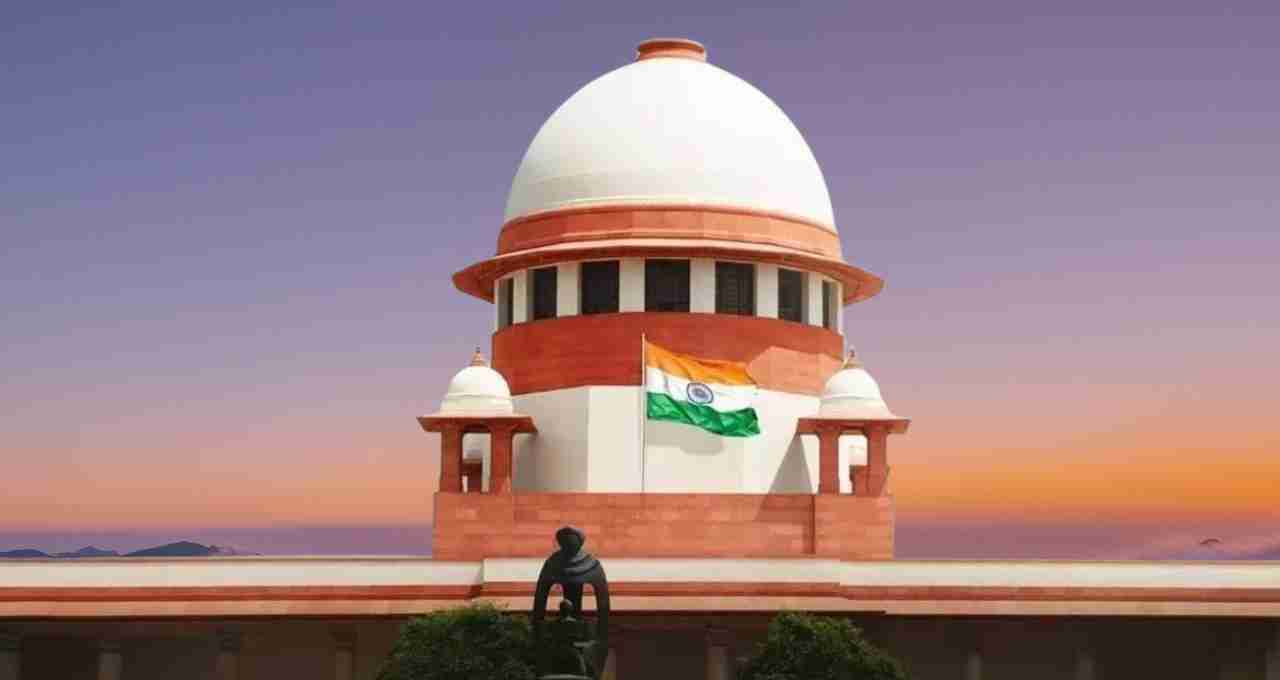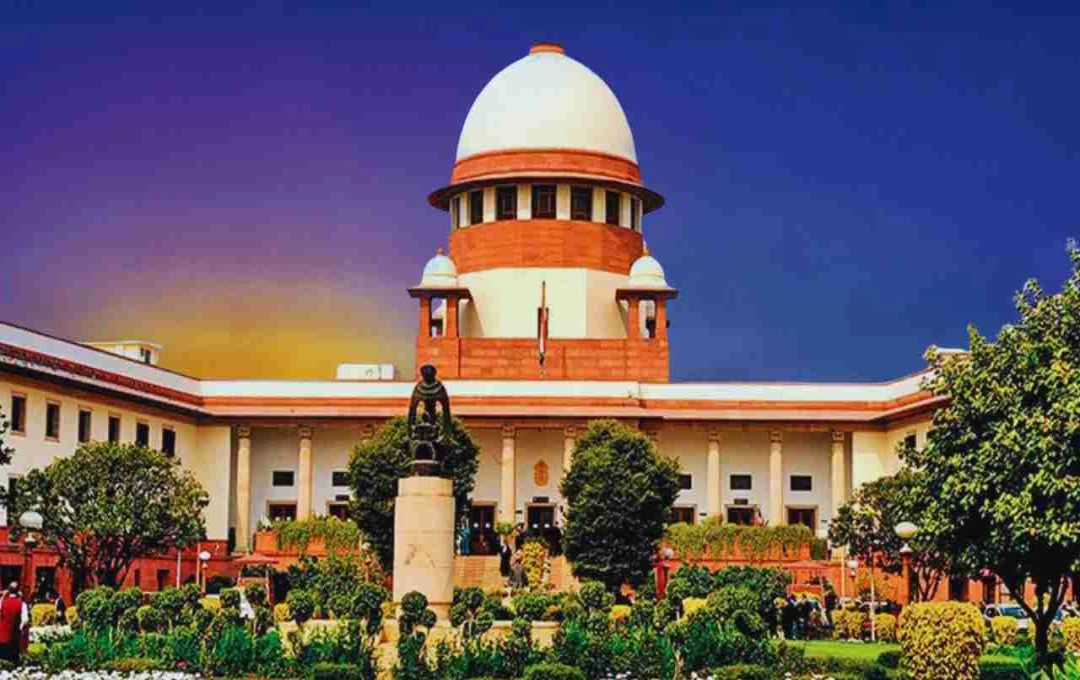The Centre has warned the Supreme Court that imposing a deadline on Governors and the President for deciding on bills could create a constitutional crisis. A five-judge constitution bench will hear the matter from August 19.
New Delhi: Ahead of the hearing scheduled to begin on August 19 in the Supreme Court, the Central Government filed its written submissions. The Centre stated that setting a deadline for the President and Governors to decide on bills would undermine the separation of powers and lead to constitutional disarray.
Hearing from August 19
The hearing will commence on August 19, and the Supreme Court has constituted a five-judge constitution bench for this purpose. This bench will be presided over by Chief Justice Bhushan R. Gavai. Justices Surya Kant, Vikram Nath, P.S. Narasimha, and Atul S. Chandurkar will also be part of the bench. The hearing will be based on the 14 constitutional questions referred by President Droupadi Murmu under Article 143.
These questions are directly related to the Supreme Court's landmark judgment of April 8, 2025, in which the court, for the first time, spoke about imposing a deadline on Governors and the President concerning state bills. That court order had sparked widespread debate.
Centre's Stand: Risk of 'Constitutional Disarray'

Solicitor General Tushar Mehta filed the written submissions in the Supreme Court on behalf of the Central Government. These submissions stated that the positions of President and Governors are 'politically complete' and represent the highest ideals of democracy. Binding such positions to a deadline would not only be against the intentions of the framers of the Constitution but could also lead to 'constitutional disarray'.
Mehta argued that while Article 142 grants extraordinary powers to the Supreme Court, these powers cannot be used to amend the Constitution or go against the explicit will of the Constitution's framers. He stated that there may be "some limited problems" in implementation, but these are not so significant as to diminish the dignity of constitutional positions like Governor or President.
Political and Constitutional Mechanisms are the Solution
The Centre maintains that if Governors or the President ever delay in deciding on bills, the solution should not be through the courts but through political and constitutional mechanisms. This is because the Constitution does not provide for any fixed deadline for the President and Governors. If the Supreme Court issues such an order, it would effectively be like indirectly amending the Constitution.
April's Supreme Court Decision Caused Controversy

On April 8, 2025, the Supreme Court, in a historic order, stated that Governors and the President must decide on state bills within a specific timeframe. The court held that keeping bills pending for a long time is an impediment to the rights of state governments and the democratic process.
However, the Central Government has now objected to this order. The Centre believes that this decision undermines the principle of separation of powers and that the judiciary is entering an area that the framers of the Constitution left for the executive.
Constitutional Questions and the Direction of Democracy
The 14 constitutional questions sent by the President primarily ask whether the Supreme Court has the right to impose a deadline on Governors or the President for deciding on a bill. Would this not be an interference by the judiciary in the domain of the executive? And should such an order not be considered within the scope of a constitutional amendment?
The answers to these questions will give a new direction to the constitutional framework of India and the relationship between the three organs—the legislature, the executive, and the judiciary—in the times to come.













